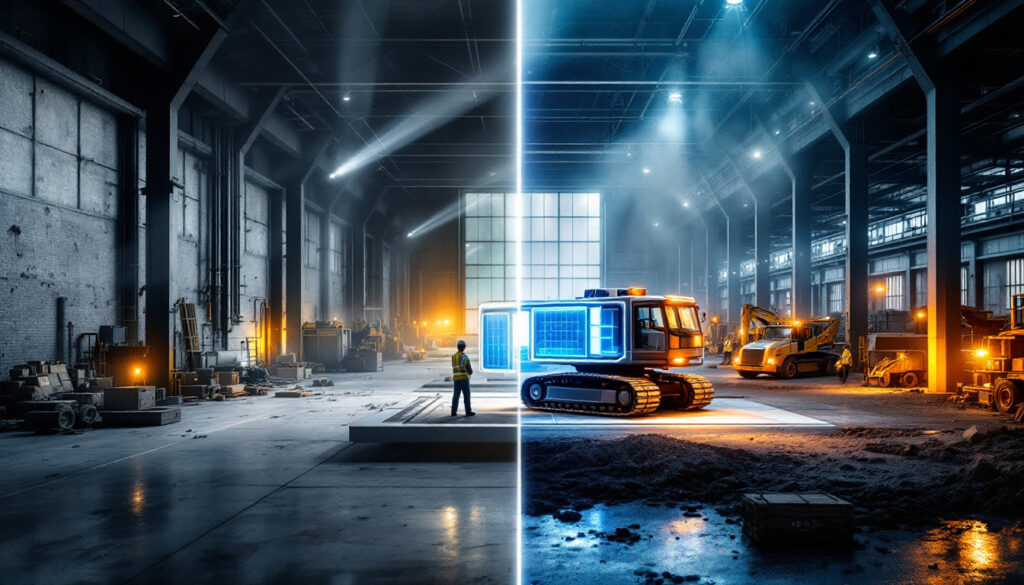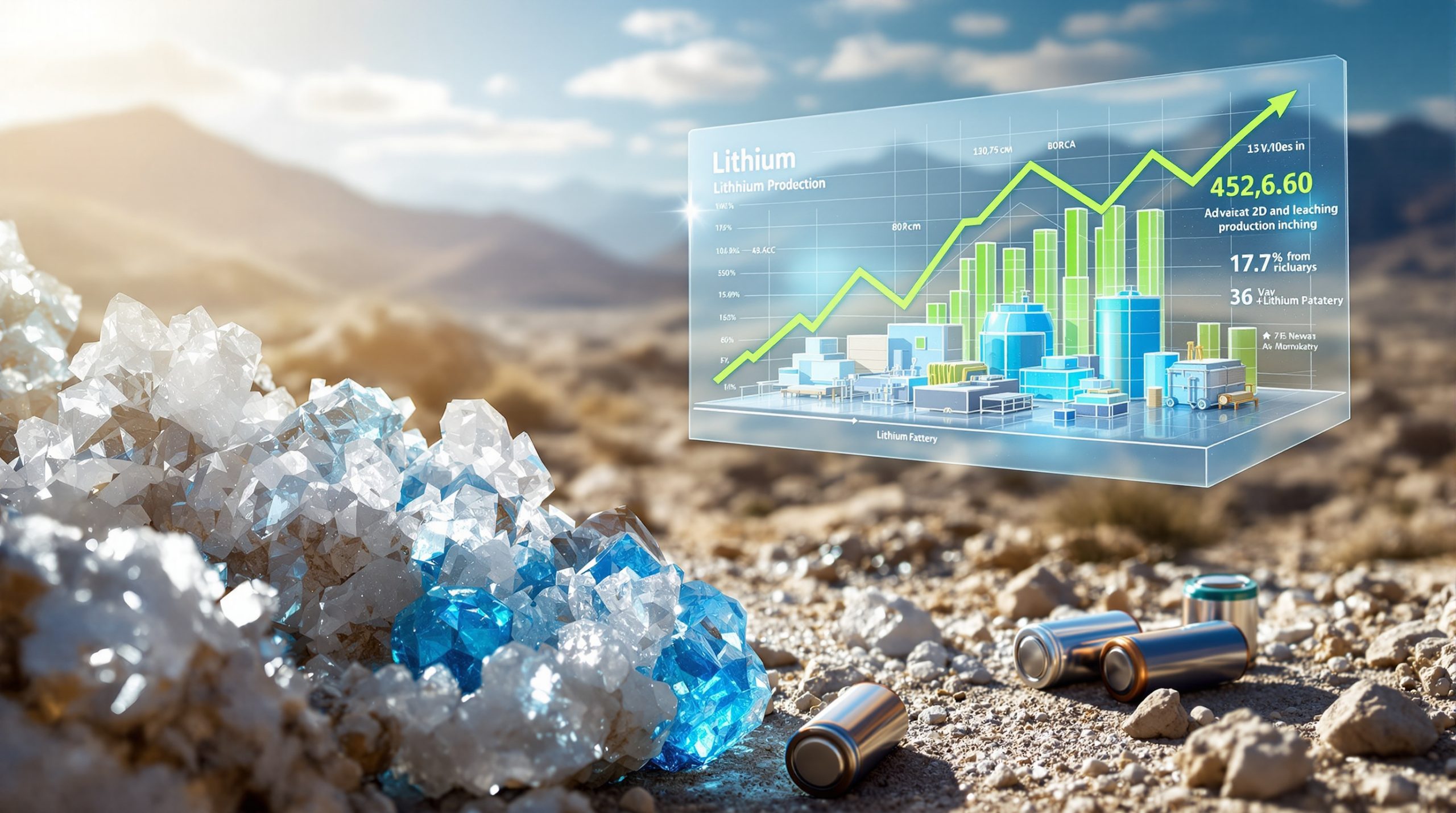Volkswagen's Scania Acquires Northvolt's Heavy Industry Battery Division
The recent acquisition of Northvolt Systems Industrial by Volkswagen's Scania marks a significant milestone in the European battery manufacturing landscape. On April 11, 2025, Scania finalized the purchase of Northvolt's heavy industry battery division from bankruptcy administrators, securing crucial battery technology and expertise for industrial applications. This transaction represents the first major asset sale following Northvolt's bankruptcy declaration in March 2025, which sent shockwaves through Europe's emerging battery sector.
What Happened to Northvolt and Why Did It Go Bankrupt?
Northvolt's Rise and Fall
Sweden's Northvolt filed for bankruptcy in March 2025, marking one of Sweden's largest corporate failures in recent history. Once heralded as Europe's best hope for developing a homegrown competitor to Asian electric vehicle battery manufacturers, Northvolt's collapse dealt a significant blow to European ambitions for battery independence.
The company had been struggling financially for months prior to the bankruptcy announcement, with mounting debts exceeding €1.2 billion and production targets consistently missed at its flagship Skellefteå plant. Despite securing over €5 billion in funding from investors including Volkswagen, BMW, and the European Investment Bank since its founding in 2016, Northvolt failed to achieve sustainable operations.
In its final months, Northvolt attempted to sell non-core businesses to rescue its core EV battery cell operations. The heavy industry division, which specialized in battery systems for construction and mining equipment, was among these assets initially marketed for sale before the company's complete financial collapse.
Factors Contributing to Northvolt's Bankruptcy
Several critical factors contributed to Northvolt's downfall, creating a perfect storm that the company could not weather despite its strong initial backing.
Intense competition from established Asian battery manufacturers proved insurmountable. Chinese giants like CATL and BYD leveraged their scale economies to drive down prices by approximately 32% between 2022-2024, creating pricing pressures that Northvolt couldn't match. These established players expanded aggressively into the European market, with CATL's Hungarian gigafactory coming online in early 2024 with production costs estimated at 40% below Northvolt's levels.
Scaling production to meet demand presented significant technical challenges. Northvolt's yield rates at its Swedish gigafactory reportedly never exceeded 68%, well below the industry benchmark of 85-90% achieved by mature manufacturers. This inefficiency created a cascading effect on unit economics, with each battery pack costing approximately €3,800 more to produce than originally projected.
The broader European EV market slowdown of 2024 further exacerbated financial pressures. With electric vehicle sales growth falling to just 9% year-over-year across the EU (compared to 35% in 2023), demand for battery cells softened precisely when Northvolt needed to operate at full capacity to achieve break-even economics.
What Are the Details of Scania's Acquisition?
Transaction Overview
Volkswagen's truck division Scania purchased Northvolt Systems Industrial in a transaction concluded with bankruptcy trustees for an undisclosed amount. Industry analysts estimate the final price likely fell below the previously disclosed offer of $6 million that Scania had made in February 2025, before bankruptcy proceedings temporarily put acquisition plans on hold.
The deal represents the first significant sale of Northvolt assets following the bankruptcy declaration. The transaction moved quickly through Swedish bankruptcy courts, receiving final approval on April 5th before closing six days later. The expedited process reflected both Scania's pre-existing relationship with Northvolt as a stakeholder and customer, and administrators' desire to preserve operational continuity for viable business units.
Unlike other potential Northvolt assets that face uncertain futures in the bankruptcy process, the heavy industry division maintained positive operating margins throughout 2024, making it an attractive acquisition target despite its parent company's troubles.
What Was Acquired?
The acquisition encompasses Northvolt Systems Industrial division with approximately 260 employees spread across two main facilities. The division's manufacturing plant in Gdańsk, Poland, produces specialized battery systems for construction equipment, mining vehicles, and other heavy industrial applications. With a production capacity of approximately 15,000 battery packs annually, the facility has been operational since 2022.
Additionally, Scania acquired a research and development center near Stockholm, Sweden, where Northvolt had concentrated its engineering expertise specifically focused on ruggedized battery systems capable of withstanding extreme environments. This facility houses specialized testing equipment for simulating high-vibration, dusty, and temperature-variable conditions typical in heavy industrial applications.
The intellectual property portfolio includes 43 patents covering specialized battery management systems optimized for high-power delivery in off-road applications. These systems feature proprietary immersion cooling technology that extends battery life by up to 40% in harsh mining environments compared to conventional automotive-grade battery packs.
How Does This Acquisition Fit Into Scania's Strategy?
Strategic Alignment
The acquisition directly supports Scania's long-term competitiveness strategy, particularly its "2030 Zero-Emission" roadmap that targets 50% electrified sales across construction and mining equipment lines. By acquiring Northvolt's heavy industry battery division, Scania accelerates this timeline by an estimated five years.
The move enhances Scania's electrification offerings specifically for off-road applications, where battery requirements differ significantly from on-road commercial vehicles. Mining equipment, for example, requires battery systems that can withstand constant vibration, extreme temperature variations, and deliver high power-to-weight ratios—all areas where Northvolt Systems Industrial had developed specialized expertise.
This acquisition also develops complementary business lines to Scania's core truck manufacturing operations. The company can now offer complete electrification solutions to industrial clients beyond its traditional transportation focus, expanding its addressable market by an estimated €3.7 billion annually by 2030.
Within the broader Volkswagen Group, the acquisition strengthens the company's position in industrial battery systems. By combining Northvolt's technology with Scania's manufacturing scale and VW's PowerCo battery subsidiary, the group creates vertical integration advantages that could yield €4,200 cost savings per unit by 2027, according to internal projections.
Operational Continuity
Scania has confirmed that Northvolt Systems Industrial will continue "business as usual" under its new ownership. This approach preserves specialized battery expertise and manufacturing capabilities built up over seven years, preventing the loss of critical technical knowledge that often occurs during bankruptcy proceedings.
The acquisition maintains employment for approximately 260 workers across facilities in Poland and Sweden. Scania has pledged €2 million for cross-training programs to integrate these employees into its broader operations while maintaining their specialized focus on industrial battery systems.
Production schedules for existing customers will be honored without interruption, with Scania's logistics and supply chain teams already integrated with the Polish manufacturing facility since mid-March 2025 to ensure smooth transition.
What Does This Mean for the European Battery Industry?
Impact on European Battery Manufacturing
The transaction represents partial salvaging of Northvolt's battery technology and expertise, preventing a complete loss of European capabilities in this strategic sector. While Northvolt's primary automotive cell production faces uncertain prospects in bankruptcy, the preservation of its industrial battery division maintains European presence in a specialized market segment.
The acquisition indicates continued interest in European battery production despite significant challenges faced by the sector. With at least three other European battery startups (Britishvolt, InoBat, and Freyr) facing financial difficulties in 2024-2025, Scania's move demonstrates selective value in the European battery ecosystem when properly aligned with industrial applications.
The transaction shows strategic importance of battery minerals supply for heavy industry applications, which differ substantially from mass-market automotive batteries. These industrial systems command premium pricing due to their specialized requirements, with margins approximately 22% higher than comparable automotive applications, making them viable for European production despite Asian dominance in standard cells.
The Scania deal highlights the consolidation occurring in the European battery sector, with vertical integration becoming the prevalent strategy. Rather than competing directly with Asian manufacturers on commodity cells, European players are increasingly focusing on application-specific integration and proprietary battery management systems.
Volkswagen Group's Battery Strategy
This acquisition further integrates battery technology into Volkswagen's commercial vehicle division, complementing the group's PowerCo battery subsidiary focused primarily on passenger vehicles. By specializing divisions based on application requirements, VW creates internal efficiencies that leverage strengths across its portfolio.
The move demonstrates Volkswagen's commitment to electrification beyond passenger vehicles, signaling long-term confidence in heavy industry's transition away from diesel power. The group has allocated €3.2 billion for commercial vehicle electrification through 2028, with this acquisition representing approximately 12% of that investment when associated integration costs are included.
The deal leverages Volkswagen's existing relationship as both a stakeholder and customer of Northvolt. Since 2019, Scania had been working closely with Northvolt on battery specifications for its electric trucks, creating natural synergies that facilitated this acquisition when opportunity arose through bankruptcy proceedings.
What Are the Implications for Heavy Industry Electrification?
Market Opportunities
The acquisition positions Scania advantageously in the rapidly growing market for electrified construction and mining equipment. Industry forecasts project 260,000 units of heavy electrified machinery for European sales by 2030, with Scania now controlling 30% of the region's production capacity for battery systems in this segment.
There is increasing focus on reducing emissions in heavy industrial applications, driven by both regulatory pressure and corporate sustainability targets. The European Union's Carbon Border Adjustment Mechanism, fully implemented in 2026, will impose carbon pricing on heavy equipment imports, creating a €2.3 billion annual advantage for manufacturers utilizing low-carbon components like electric powertrains.
Scania gains strategic positioning in the off-road electrification market, which is projected to grow at 28% CAGR through 2030—significantly faster than on-road commercial vehicles at 17%. This acceleration is driven by mining decarbonisation targets, with major players like Rio Tinto and BHP committing to fully electric underground operations by 2030.
The integration with Scania's existing commercial vehicle electrification efforts creates cross-selling opportunities for fleet operators managing both on-road and off-road equipment. The company estimates that 63% of its existing truck customers also operate construction or mining equipment, creating natural channels for expanding electric equipment adoption.
Technological Advantages
Through this acquisition, Scania gains access to specialized battery systems designed specifically for demanding industrial applications. Northvolt's fourth-generation immersion cooling technology extends battery cycle life by 40% in high-dust environments—a breakthrough particularly valuable for underground mining equipment where conventional cooling systems frequently fail.
The integration of this battery expertise into Scania's product development pipeline enables faster time-to-market for new electric industrial equipment. The company projects launching three new off-road models by Q4 2025, approximately two years ahead of its previous roadmap.
The potential for cross-pollination between commercial vehicle and industrial equipment battery solutions creates innovation advantages. For example, Northvolt's thermal management systems originally developed for mining applications are being adapted for Scania's long-haul electric trucks, potentially extending range by 14% in extreme temperature conditions.
FAQs About the Northvolt-Scania Deal
What was Northvolt Systems Industrial's specialty?
Northvolt Systems Industrial specialized in manufacturing battery systems for construction, mining, and heavy industrial equipment that must operate in challenging environments. Unlike automotive batteries, these systems are engineered to withstand extreme temperature variations (-40°C to +80°C), constant vibration, dust infiltration, and deliver high power-to-weight ratios essential for equipment like excavators and haul trucks.
The division operated production facilities in Gdańsk, Poland, where complete battery systems were assembled using cells sourced from various suppliers, including Northvolt's Swedish plant before bankruptcy. This facility's flexible manufacturing approach allowed customization for specific industrial applications, with energy capacities ranging from 20 kWh for small equipment to 600 kWh for large mining vehicles.
The R&D center near Stockholm focused on designing battery solutions for demanding off-road applications, with particular expertise in thermal management, structural integration, and power delivery systems optimized for equipment operating in mining and construction environments.
Why did Scania want to acquire this division specifically?
The acquisition offered strategic fit with Scania's electrification roadmap, accelerating its timeline for electric industrial equipment by approximately five years. The specialized knowledge in ruggedized battery systems would have taken Scania substantial time and investment to develop internally.
The division's capabilities are highly complementary to Scania's existing commercial vehicle business, allowing the company to expand into adjacent markets while leveraging shared components, distribution networks, and service infrastructure. Industry analysts estimate this complementarity will generate €120 million in annual synergies by 2027.
Scania's position in the off-road applications market is strengthened significantly, with the acquisition providing immediate credibility in a segment where battery expertise represents the primary barrier to electrification. The company gains 43 patents and specialized testing facilities that would have required 3-5 years to develop independently.
The prior relationship as both stakeholder and customer created natural integration advantages, with Scania's engineering teams already familiar with Northvolt's battery architecture and management systems. This familiarity enabled rapid due diligence and allowed integration planning to begin months before the formal acquisition.
What happens to the employees of Northvolt Systems Industrial?
All approximately 260 employees will continue with the business under Scania's ownership, maintaining both technical expertise and operational continuity. This includes 185 manufacturing specialists at the Polish facility and 75 engineers and researchers at the Swedish R&D center.
Operations will continue "as usual" according to Scania's official statements, with production schedules maintained for existing customers during the transition. The company has pledged €2 million for integration and training programs to align company cultures and systems.
The acquisition maintains both manufacturing and R&D capabilities intact, preserving the division's complete value chain from concept development through production. The Swedish R&D team will lead a new "Extreme Environment Battery" initiative involving 15 PhD researchers from KTH Royal Institute of Technology, expanding the division's research capabilities.
What does this acquisition tell us about the European battery industry?
The transaction reveals that European battery manufacturing faces significant challenges competing directly with Asian manufacturers on cost for standard cells, with three major European startups having faced financial difficulties since 2023. However, specialized applications with higher margins remain viable for European production.
Strategic acquisitions are occurring to preserve valuable capabilities developed through years of public and private investment. The European Commission estimates that approximately €380 million in public funding contributed to Northvolt's technology development, making bankruptcy asset preservation a priority for economic recovery.
Heavy industry applications remain a viable market segment for European battery manufacturers, with specialized requirements creating natural barriers to entry that protect margins. The ruggedized battery systems for industrial equipment command premium pricing approximately 22% higher than automotive-grade packs, supporting European production economics.
Vertical integration continues among major automotive groups, with companies increasingly bringing battery expertise in-house rather than relying on independent suppliers. This trend suggests further consolidation is likely in the European battery sector, with surviving players becoming increasingly integrated with end-users rather than pursuing standalone production. Furthermore, these developments highlight ongoing industry challenges as companies navigate lithium market dynamics and seek to address mining ESG challenges while pursuing digital mining innovations to remain competitive.
Want to Profit from the Next Major Mineral Discovery?
Stay ahead of the market with Discovery Alert's proprietary Discovery IQ model, delivering instant notifications when significant ASX mineral discoveries are announced. Explore why historic discoveries can generate substantial returns by visiting the dedicated discoveries page and begin your 30-day free trial today.




